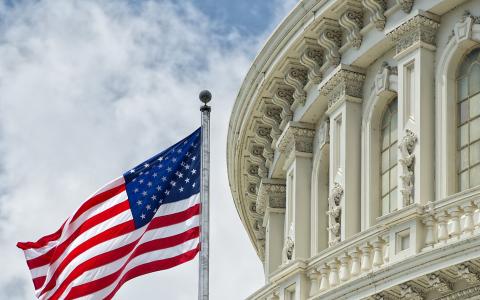
The Securities and Exchange Commission (SEC) is currently facing calls to suspend its intricate rule-making initiatives. Various business groups are expressing concerns over the influx of new regulations. If Congress fails to secure federal government funding by Sunday, these calls may become a reality.
Key takeaways from Government Shutdown
- The Securities and Exchange Commission (SEC) is urged to suspend its complex rule-making initiatives.
- If federal government funding is not secured by Congress by Sunday, the calls to suspend SEC initiatives may become reality.
- Duration of a potential shutdown is uncertain; it could disrupt new regulations, especially in contentious areas like sustainable investing.
- In a shutdown, the SEC retains 437 essential personnel, excluding examination and enforcement personnel.
- Several core SEC database systems managed by external contractors will continue operating.
- Advisor oversight will relax during a government shutdown, according to Thompson.
- How regulators with a skeletal staff would respond to a significant market event during a shutdown is an intriguing question.
Similar to other federal agencies, the SEC has outlined contingency plans for its operations in case of a funding lapse. (The government's funding deadline is Saturday, September 30, and without an agreement, the government will cease operations on Sunday, October 1.)
This means that the SEC will quickly reduce its workforce from thousands to only a few hundred essential employees, virtually overnight.
Among the activities that will cease is "all nonemergency rulemaking," as specified in the operations plan. This includes initiatives directly affecting wealth advisors, like an expanded Custody Rule framework and proposed regulations addressing conflicts of interest stemming from advisors and brokers using predictive data analytics or artificial intelligence. The key question remains: for how long?
John Cataldo, President of Advisory Services and Chief Legal Officer at Integrated Partners, raises an important question: "How long before these timelines start being affected?"
The last government shutdown, starting in December 2018, lasted for 34 days. In contrast, the previous funding gap earlier in the same year only lasted two days. In 2013, the government underwent a 16-day shutdown.
The duration of a potential shutdown remains uncertain. However, the longer SEC policymakers remain absent, the greater the delay in implementing new regulations, especially those in contentious areas like sustainable investing.
Duane Thompson, President of the consultancy Potomac Strategies, suggests, "Given SEC Chair Gary Gensler's ambitious regulatory agenda, an extended shutdown could impact pending investment advisor rules, including ESG and cybersecurity disclosures. However, I believe the shutdown would need to persist for at least three to four months to disrupt ongoing work."
In case of a shutdown, the SEC, with approximately 4,600 employees, would retain only 437 essential personnel. This includes legal staff capable of seeking judicial relief to halt ongoing fraud, for instance.
However, it excludes examination and enforcement personnel responsible for everyday oversight, such as routine advisor examinations and providing interpretive guidance in response to compliance inquiries submitted by advisors and registrants seeking the commission's guidance.
"That essentially pauses the proceedings, and they will resume once more," notes Cataldo. "I do not anticipate that a government shutdown will significantly impact the day-to-day operations of Registered Investment Advisors (RIAs)."
Entities undergoing nonemergency practice examinations or negotiating settlements with enforcement staff may find their engagement with the commission disrupted until government funding is restored.
The SEC will also suspend its routine oversight of self-regulatory organizations like FINRA, tasked with overseeing the brokerage industry. Consequently, the SEC would cease reviewing proposed regulations by FINRA or other self-regulatory bodies. However, these independent funding mechanisms ensure these organizations continue operating.
"Since FINRA is a self-regulatory organization funded independently, we will operate as usual during a government shutdown," states a spokesperson. This includes continued market surveillance, investigations into misconduct, enforcement of disciplinary actions, dispute resolution oversight, and publishing investor education materials.
Several core SEC database systems, including the Edgar filing system for public companies and the IARD housing advisor filings, are managed by external contractors who will continue their operations as long as the SEC can compensate them.
Currently, registered advisors can continue to submit updates to their Form ADV and other documents. However, new RIAs seeking initial registration with the SEC will need to await the conclusion of the shutdown. The SEC's exams division will be unable to approve investment advisor registration applications during this period, as outlined in the commission's operating plan.
In summary, advisor oversight, alongside other SEC functions, will experience some relaxation during a government shutdown, according to Thompson. He anticipates that a continuing resolution will emerge from a divided Congress within a few weeks to reopen the government, barring any major market disruptions. Government shutdowns are not entirely unprecedented, with 14 occurring since 1981.
A more intriguing question pertains to how regulators, operating with a skeletal staff, would respond to a significant market event, such as a severe market correction, during a shutdown.
Source: Barrons
The content was originally posted at this link.



